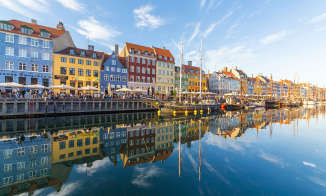Despite varying governmental approaches to the coronavirus response across the Nordics, there is a consistent optimism throughout the region, both with regards to what 2021 holds and also the overarching impact of the virus on the markets in the long term.
‘Largely, and perhaps surprisingly, the feeling is that it has been business as usual,’ states Gorrissen Federspiel’s managing partner Martin André Dittmer of the Danish market. ‘When the pandemic broke, there was a lot of uncertainty around how the market would respond and how businesses would navigate the situation. But once the initial shock had subsided, what we mostly experienced was a focus on government relief packages and issues relating to employers’ legal obligations.’ Continue reading “Euro Elite: Nordics – Solid states”
















